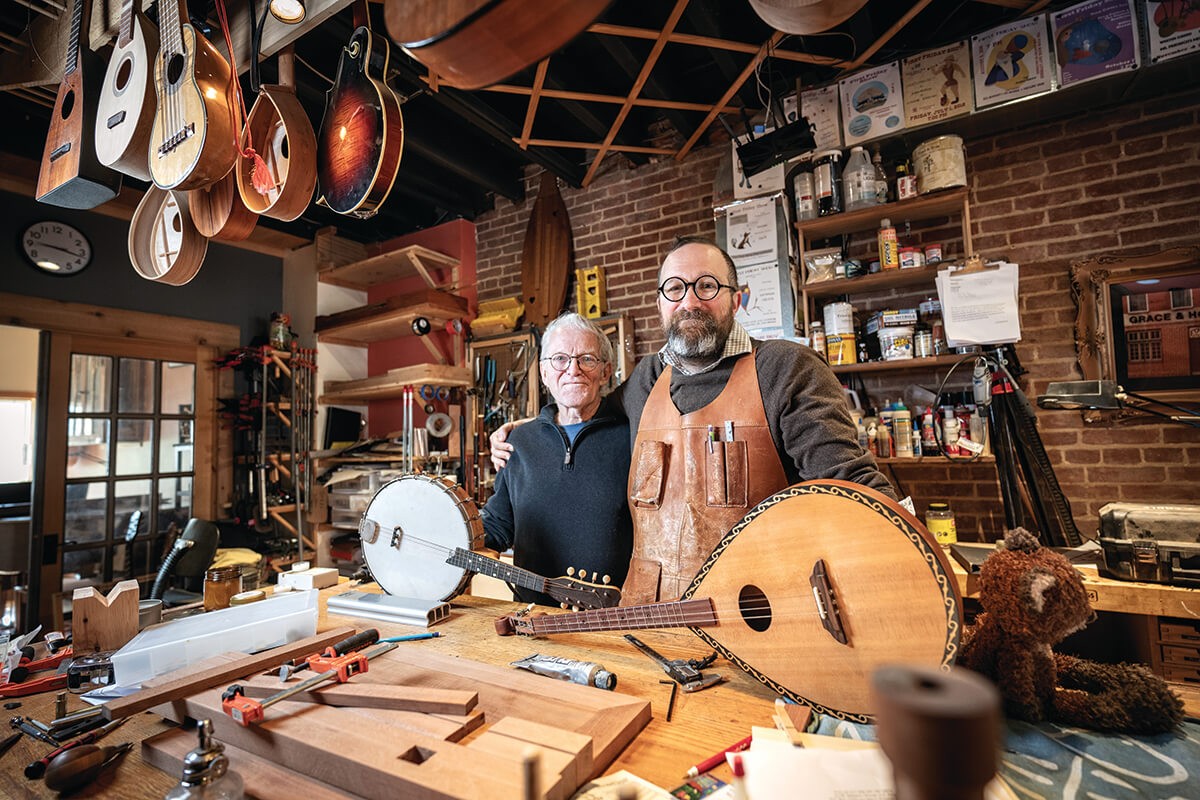Arts & Culture
Four Hour Day in Lauraville is a Respite for Music Lovers
In the decade since opening, the luthier shop and private lesson space has expanded into a live-music venue, too.

It was the early 2010s when classical pianist Tyler St. Clare found himself at odds with his career path.
“I love piano, and I would never dissuade anyone from pursuing it at a high level,” says the 38-year-old Baltimore native, pictured right, above. “But the sacrifices you have to make to follow the traditional path to success just weren’t appealing.”
Long hours of practice for constant auditions were stresses that St. Clare decided to put behind him when he hatched the plan for Four Hour Day.
Named for a novel written by his father, Gabe, a retired machinist, pictured left above, about a utopian society, Four Hour Day was conceived as a luthier shop to build and repair stringed instruments and also offer private acoustic music lessons. The duo set to work transforming a house in Lauraville, opening its doors to the public in 2015.
Today, the welcoming shop exudes the warmth of a wooden cottage or timeworn meditative space. Paintings adorn the walls, Tibetan prayer flags hang from the rafters, and a tidy workshop overlooks it all from a mezzanine in the rear.
Up there, Tyler repairs and restores a range of folk instruments, from flutes to ukeleles, imbuing the space with aromas of fresh-cut wood, polishes, and oils. Large panel windows look out onto Harford Road, illuminating the interior with soft lighting, amplifying its organic vibe. And in the decade since opening, the shop has expanded, to Tyler’s surprise, into a live-music venue, too.
“I guess there’s a demand for intimate spaces like this—people started calling up and asking, ‘Hey, can we play your room?’ and it took off from there,” he says.
Able to accommodate up to 60 patrons, the main room hosts touring musicians, as well as jam sessions, dances, classes, and lectures. The second floor is divided into three well-equipped private-lesson studios, which altogether host 10 teachers and 100 students. Lessons are available for piano, cello, violin, guitar, mandolin, and more. These rooms also sport basic recording gear, like Apple’s Garage Band, MIDI controllers, and microphones, enabling students to hear their work and explore the practical side of music theory.
“For me, teaching music is just as much about understanding composition and arranging as the instrument itself,” says Tyler. “I want students to explore their creativity and learn about that stuff, because there have to be more paths to creative success in music.”
But spend a few minutes inside Four Hour Day and it becomes obvious that this is more than just a lesson space or venue; it’s a hive of musicians, a haven for gentle spirits and deep thinkers, and a community of acoustic-music enthusiasts.
“We want to keep growing by just doing what we’re doing,” says Tyler. So far, that seems to be working just fine.